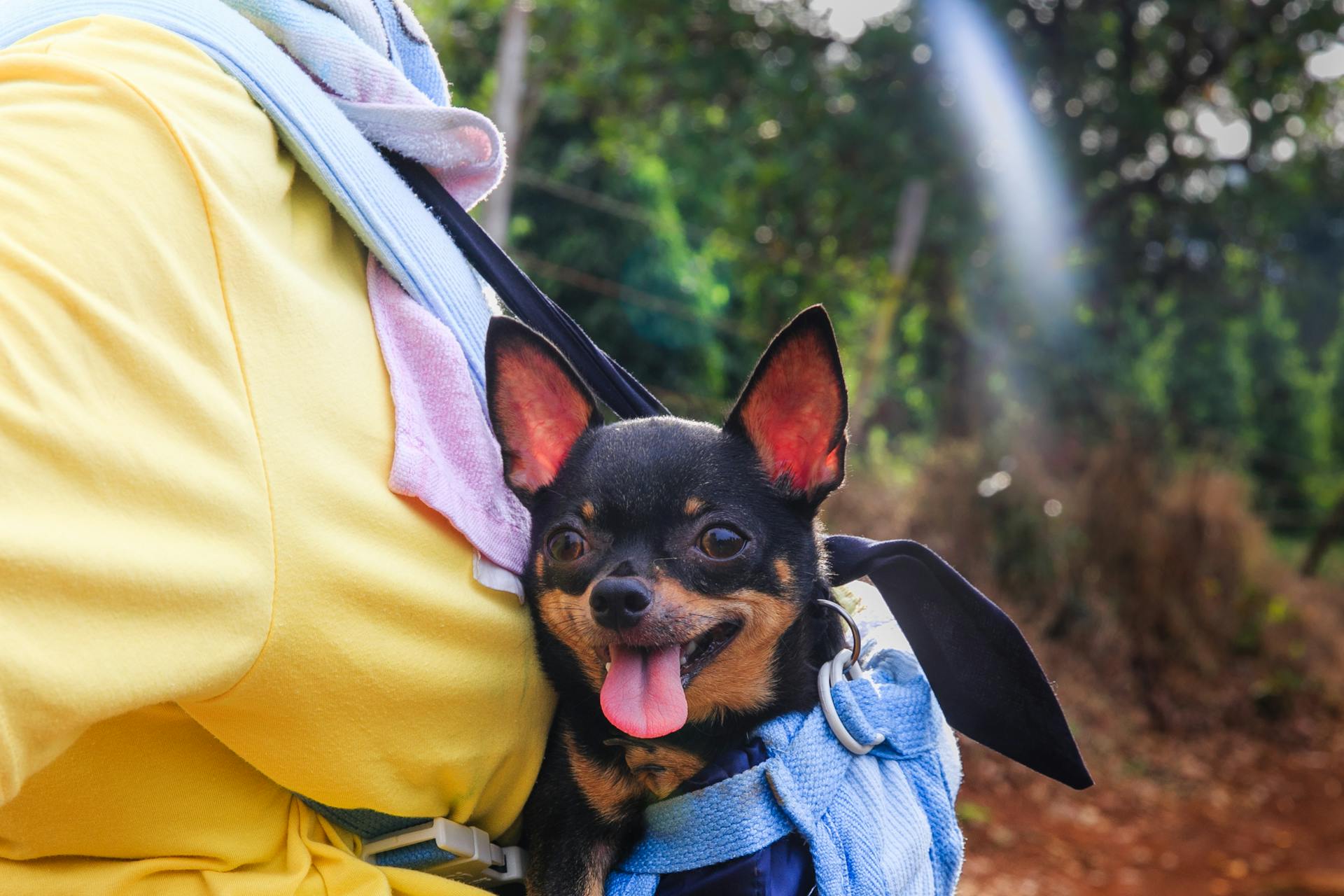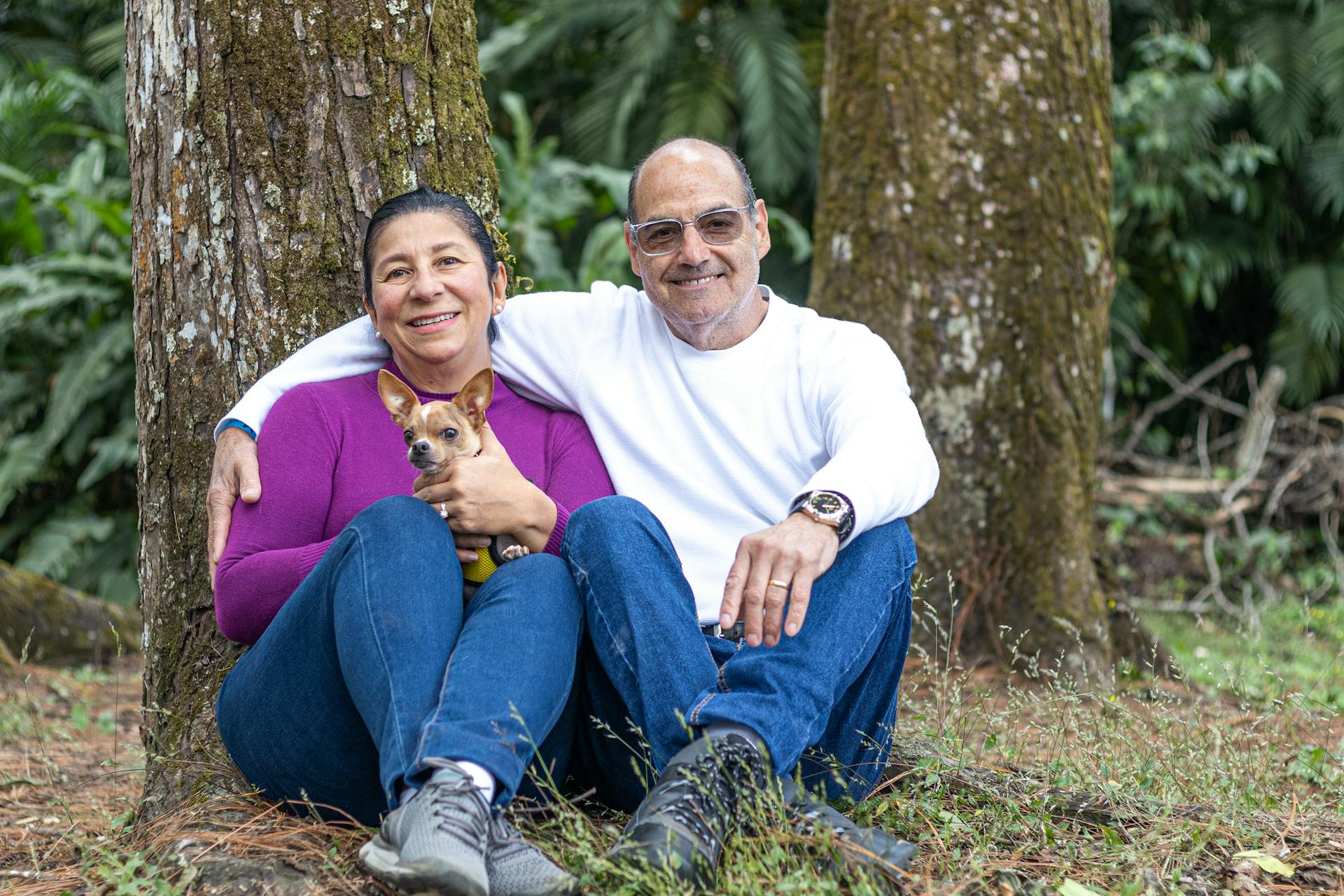
Chihuahuas are often stereotyped as being mean or aggressive, but is this reputation really justified? In reality, Chihuahuas can be quite loving and affectionate, but they do have some unique characteristics that can contribute to their feisty reputation.
One reason Chihuahuas may come across as mean is their natural instinct to defend themselves and their territory. This is a leftover from their wild ancestors, who needed to be protective of their resources to survive.
Chihuahuas are also known to be highly territorial, which can make them wary of strangers and other animals. This can lead to growling or snapping if they feel threatened or if their space is invaded.
Causes of Aggression
Aggressive traits in Chihuahuas may be due to a lack of socialization, which can cause them to be more fearful or uncomfortable with other people and dogs.
Social development for a Chihuahua is most crucial in the first seven weeks of their life, and exposing them to more people and other pets during this time may help to curb their aggression toward others when they are older.
Intriguing read: Why Do People like Chihuahuas
Fear based aggression can also be a factor, as Chihuahuas can be scared of large animals, rough children, or loud noises, and fear can increase with age.
Proper training and socialization can help to minimize aggression in Chihuahuas, and owners should be aware of the warning signs of aggression, such as growling, snapping, or barking excessively, a curled up lip, bared teeth, stiff body, and raised hair on their back.
Chihuahuas may also act aggressively due to their protective nature, resource guarding, or anxiety, and owners have a responsibility to train their dogs to interact with other people, animals, and general behavior.
Intriguing read: Are Chihuahuas Good for First Time Owners
Poorly Bred
Poorly bred Chihuahuas can be more prone to health problems and poor temperaments.
Breeding for appearance alone, such as exaggerating a dog's small size, can lead to genetic defects being passed on to the puppies. This is why you often see Chihuahuas with health issues like arthritis, tooth decay, and gum problems.
Here's an interesting read: Common Health Problems with Chihuahuas
Teacup dogs, bred to be as small as possible, are often the result of pairing runts of the litters together, which can exacerbate existing genetic defects.
Some breeders may choose unhealthy or aggressive dogs as parents, which can lead to puppies inheriting their bad traits.
Reputable breeders, on the other hand, prioritize breeding healthy and friendly dogs, making them a much better choice for finding a well-behaved Chihuahua.
Causes of Aggression
Aggression in Chihuahuas can be caused by a lack of socialization, which can lead to fear or discomfort around other people or dogs.
Chihuahuas get attached to their humans and often don't socialize much with others, leading to aggressive behavior.
Social development for Chihuahuas is most crucial in the first seven weeks of their life, and exposing them to more people and other pets during this time can help curb aggression later on.
Playdates with other dogs, park walks, pet stores, and puppy classes are great ways to socialize your Chihuahua.
Their aggressive behavior is usually triggered if they feel threatened, scared, or insecure, according to The Chihuahua Shack.
Resource guarding, where Chihuahuas try to establish ownership of a person, treat, or toy, is also a common reason for aggression.
Chihuahuas are more susceptible to getting hurt due to their small size, which can lead to lashing out to protect themselves.
Improper breeding practices, such as creating "teacup" dogs, can lead to genetic defects that cause aggression, including arthritis, tooth decay, and hydrocephalus.
Fear can also be a major contributor to aggression in Chihuahuas, and it can increase with age in all dogs.
Chihuahuas can be scared by large animals, rough children, and loud noises, and minimizing exposure to these triggers can help reduce fear-based aggression.
Territorial behavior is also a common trait in Chihuahuas, causing them to get agitated when strangers come near their family or home.
Curious to learn more? Check out: Why Is My Dog Scared of a Certain Person
Understanding Chihuahua Behavior
Chihuahuas can be quite aggressive, but it's often due to a lack of socialization. This is because they tend to get so attached to their humans that they don't socialize much with other people or dogs.
Proper socialization is crucial for a Chihuahua's development, and it's most important between 8 and 16 weeks of age. During this period, puppies are in a fear period, and experiences can have a lasting impact on their behavior.
A well-socialized Chihuahua is more likely to be happy, confident, and friendly towards strangers and other animals. On the other hand, a poorly socialized one may react with fear-based aggression.
Chihuahuas have unique personalities, and some may naturally display more assertiveness or territorial behavior. However, their environment and upbringing heavily influence their behavior, and early socialization can make a difference.
The "Small Dog Syndrome" is a behavioral pattern where some small dogs, including Chihuahuas, display an exaggerated sense of dominance and aggression. This can be due to overcompensation for their small size and a lack of proper training and socialization.
If your Chihuahua is aggressive, it's essential to identify the underlying cause. Separation anxiety and lack of socialization are two common causes, and addressing these issues can help reduce aggression.
Proper socialization can be done by introducing your Chihuahua to new people, animals, and experiences from an early age. This can help them become more confident and calm around others.
Worth a look: Why Are Chihuahuas so Small
Chihuahuas can be protective of their owners and territory, which can lead to stranger-directed aggression. Teaching children and others to recognize a dog's body language can help prevent incidents.
A Chihuahua's protectiveness can be managed with proper training, socialization, and attention from their owners. With patience and consistency, you can help your Chihuahua become a more well-behaved and socialized companion.
Worth a look: Do Chihuahuas like to Sleep with Their Owners
Signs and Symptoms
Chihuahuas may be tiny, but their aggressive behavior should not be taken lightly. Growling or barking at people or other pets, especially when they're near their food bowl, is a common sign of aggression.
Their body language can also indicate aggression, such as stiffening up or raising the hackles. Eye contact is another way to tell if a Chihuahua may become aggressive – if they're fixated on something or someone, it could be a sign of an impending attack.
They may show aggression through body language, and it's essential to recognize these warning signs to prevent an attack. If your Chihuahua is growling or barking at people or other pets, it's a clear indication that they're feeling threatened or territorial.
Consider reading: Why Are Chihuahuas Aggressive
Frequently Asked Questions
Do Chihuahuas try to protect their owners?
Yes, Chihuahuas are naturally protective of their owners and can become vigilant and defensive when they sense potential threats. This loyalty and instinct to defend their people are key characteristics of the breed.
Sources
- https://www.greenmatters.com/pets/why-are-chihuahuas-so-aggressive
- https://dogo.app/why-are-chihuahuas-so-mean/
- https://metro.co.uk/2021/09/26/why-are-chihuahuas-so-aggressive-15316555/
- https://dogsnet.com/why-are-chihuahuas-so-mean/
- https://content.tailster.com/chihuahuas-so-aggressive-expert-tips-to-control-it/
Featured Images: pexels.com


